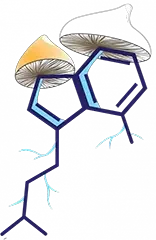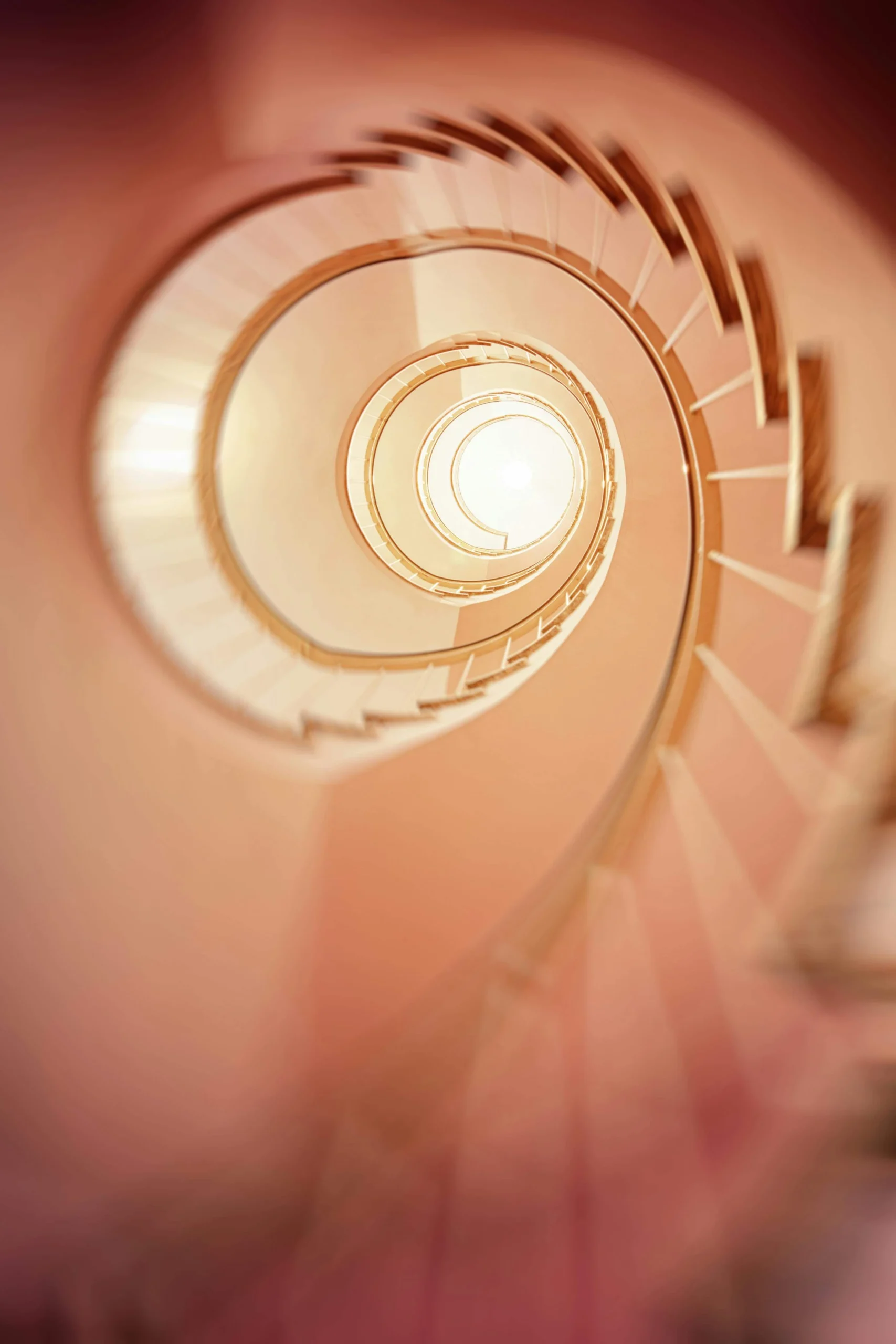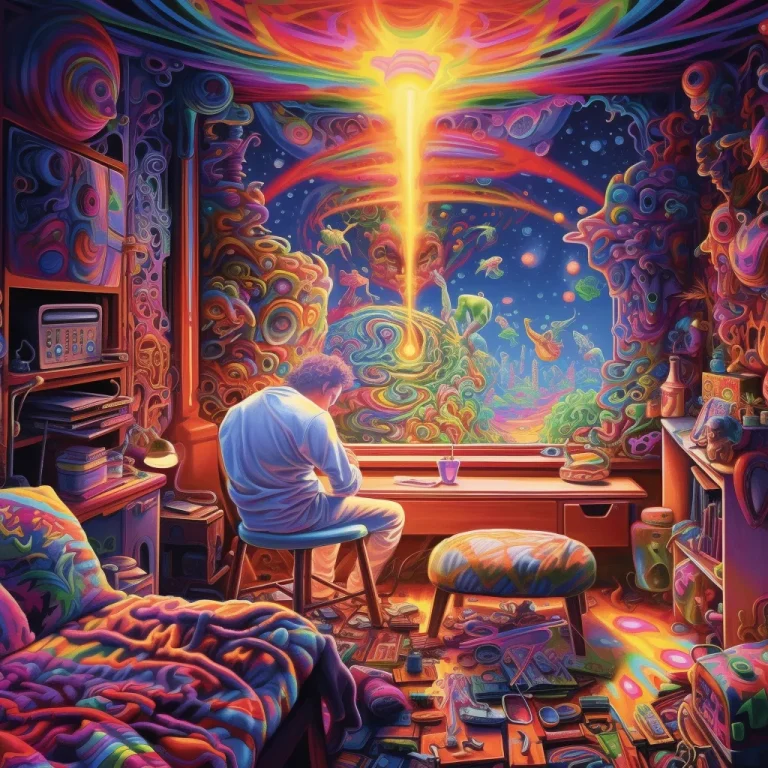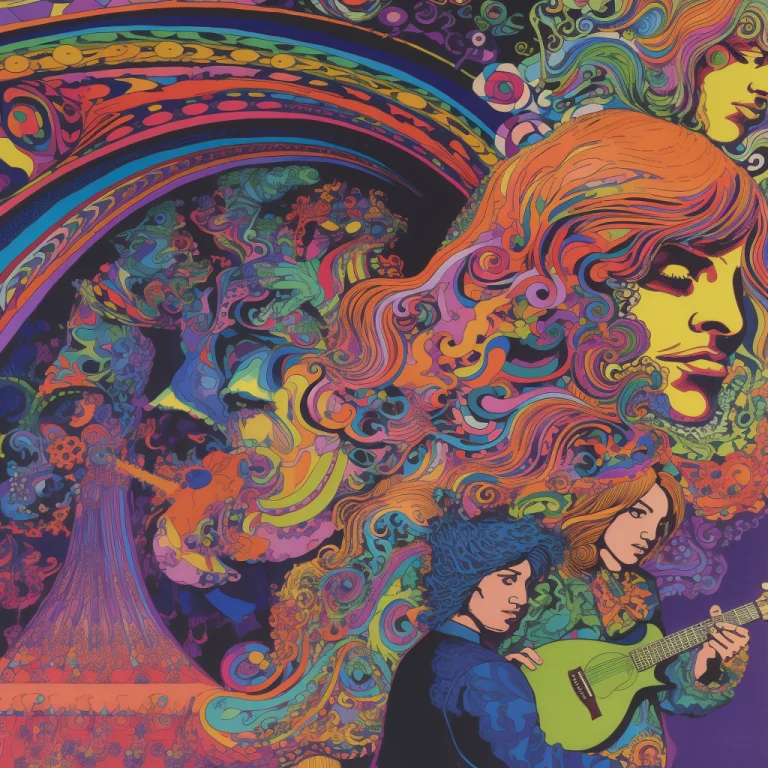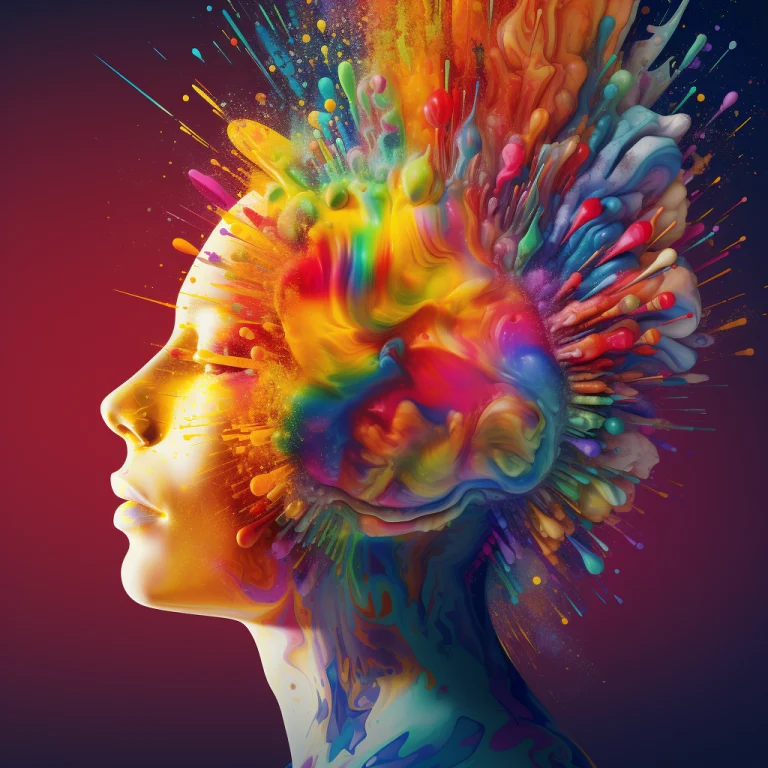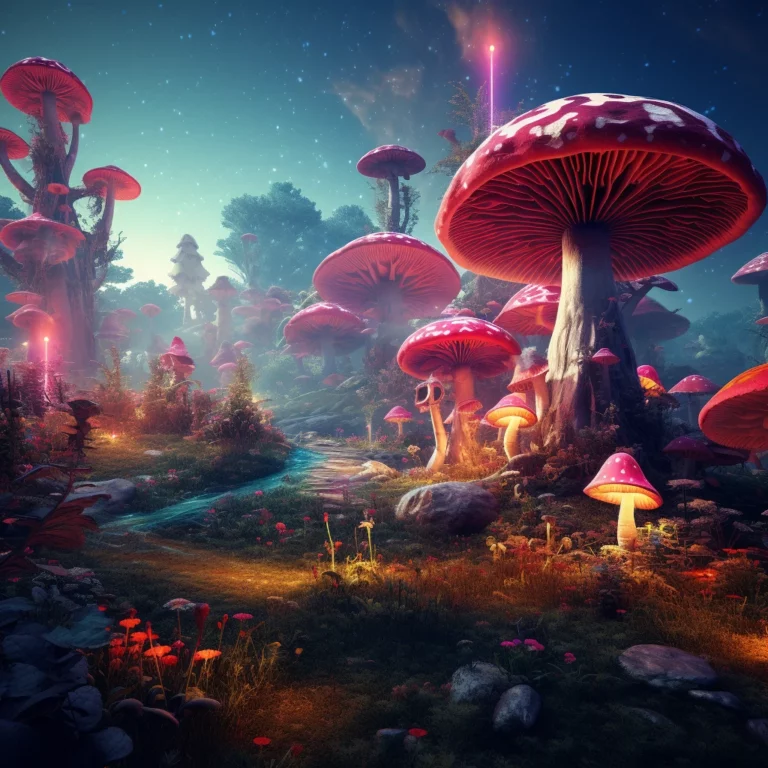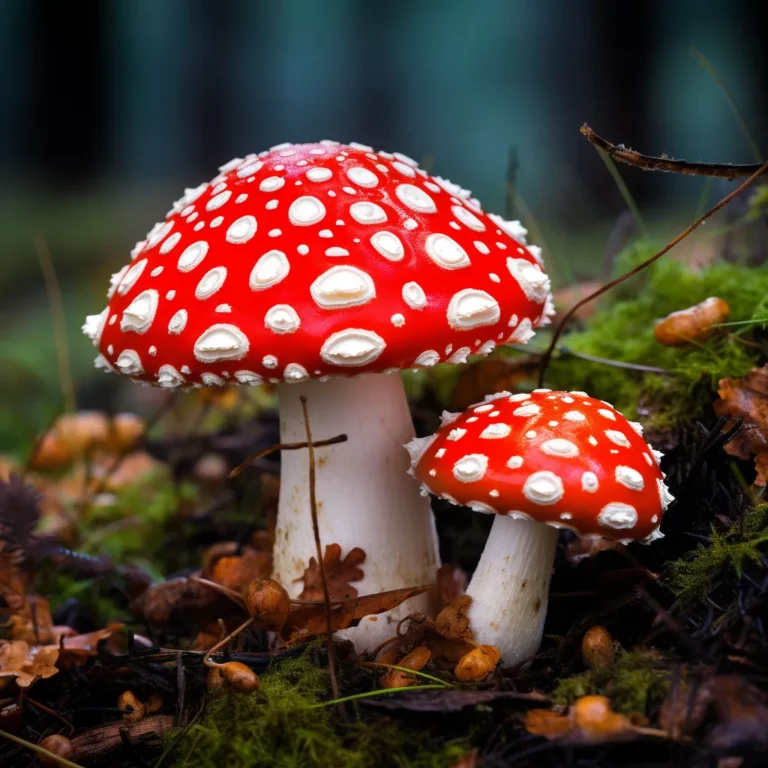Modern Research and Future Avenues: Unveiling the Potentials of LSD
Lysergic Acid Diethylamide, commonly known as LSD, is an impressive psychedelic compound that has experienced a dramatic transformation over the past century. The early chapters of LSD’s story include significant scientific and therapeutic inquiry. Unfortunately, much of it was halted due to socio-political backlash and regulatory constraints.
Today, we are witnessing a revival in the scientific community’s interest in LSD and the medical potentials they hold. LSD is now being re-evaluated as an integrative approach to mental health care. With modern neuroscientific tools and refined research protocols in place, LSD can potentially open doors for those that are struggling with their mental conditions. This article will explore the history of LSD, modern day research landscape, an forecasting future pathways.
A Historic Reflection on LSD
It was first discovered by Swiss chemist Albert Hofmann in 1938. It was infamously re-experienced by Hofmann himself when he accidently ingested it. By post-war, particularly from the 1950s to the 1970s, LSD and the research about it was published over a thousand different scientific papers and clinical trials. In these studies, the effects of various psychiatric conditions such as alcoholism, depression, and anxiety and their interactions with LSD were studied. Stanislav Grof and Humphry Osmond, influential psychiatrists and researchers, pioneered the earliest LSD-assisted psychotherapy documented. Their research showed that there were profound therapeutic outcomes in those patients that partook in the study.
LSD allowed patients to explore their deepest psychology and facilitated what was often described as “ego dissolution”. This temporary suspension of one’s sense of self allowed patients to confront their repressed emotions or traumas which lead to an understanding and healing. Therapists noted that experiences such as these can potentially lead to lasting psychological improvements. Unfortunately, by the late 1960s, the general public panicked over recreational misuse and dangers behind that. This sadly led to the criminalization of LSD and by the 1970s it was classified as an illegal substance due to the high potential of abuse and not an effective medical treatment. This unfortunate stance effectively ended the research and scientific investigation for decades.
The Modern Revival of LSD
Attitudes toward psychedelics gradually shifted and academic research and clinical spaces began research again in the 2000s. A mental health crisis demanding more innovative solutions, fueled by a deeper understanding of brain function, and a growing dissatisfaction with conventional psychopharmacology, scientists and researchers are once again turning to LSD and other psychedelic substances. Double-blind placebo-controlled trials and rigorous ethical standards are taking place now for modern research. Extensive screening, long term follow-up, carefully monitored dosing sessions with trained therapists is allowing scientists to enhance scientific validity and minimize the risks.
Psychedelic Therapy: LSD and Mental Health
Studies held at institutions such as Imperial College London and the Multidisciplinary Association for Psychedelic Studies (MAPS) have shown that LSD can induce powerful introspective experiences. Their research has shown that these experiences may relieve symptoms of depression, anxiety, and PTSD.
LSD is believed to act primarily on serotonin 2A receptors, promoting a state of heightened neural connectivity and plasticity. This “entropic” brain state may help patients break free from maladaptive patterns of thought and behavior, encouraging psychological flexibility and emotional processing. A 2020 study in Frontiers in Pharmacology highlighted the potential of LSD-assisted psychotherapy to alleviate generalized anxiety disorder, with participants reporting enhanced emotional openness, reduced avoidance behaviors, and improved resilience to stress.
The hope with this research is that this therapeutic model aims to uncover the roots of psychological suffering and guiding individuals through transformative psychological experiences that lead to long term enduring change for the better.
Addiction Treatment: LSD’s Emerging Role
The idea to use LSD to treat addiction was first considered back in the 1950s. Modern day studies are beginning to refine and validate those early considerations. A study published in the “Journal of Psychopharmacology (2012)” reviewed six clinical trials involving over 500 participants. In these studies, the research showed that one single dose of LSD along side psychotherapy significantly reduced alcohol addiction for up to six months.
Various researchers described LSD enabling a “quantum leap” into self-awareness. During their psychedelic experience, individuals were able to examine the root causes for their addictive behaviour. This too allowed them to confront emotional trauma and reconnect with long-disregarded values and aspirations. Clinical and anecdotal reports suggests that this was the motivation for change that these patients needed. It is also reported that patients felt a renewed sense of purpose and encountered recovery.
Ongoing studies for treating nicotine dependence, opioid use disorder, and addictions to gambling are needed. These early studies show promise of what LSD can do to help in the realm of addiction and warrants further exploration and research.
Using LSD in End-of-Life and Palliative Care
When faced with your own mortality, it can evoke a spattering of emotions from fear, sadness, anxiety, regret, and acceptance. Most of these conditions are often inadequately treated by conventional medicines during this time of one’s life. LSD in palliative care addresses and assists the existential distress that terminally ill patients experience.
In 2014, there was a study published in “The Journal of Nervous and Mental Disease” where it discussed that LSD-assisted psychotherapy reduced end-of-life anxiety and improved emotional well-being in patients with life-threatening conditions. Most patients reported feelings of acceptance, peace, interconnectedness. Some patients have gone as far as saying that it was one of the most meaningful events of their lives. It is suggested that based on these outcomes that LSD may offer more than just symptom relief. The research has shown that it has provided existential comfort and spiritual insight for those that are in palliative care. It may even be safe to say that it has helped individuals confront death with greater calmness and closure.
Scientific Challenges
Despite the promising results outline thus far, LSD research is far from obstacles. The most notable obstacle is the long duration of LSD’s effect which can last up to 12 hours. This can possibility be distressing or an overwhelming experience for patients where they can experience a “bad trip”. Unfortunately, the legal status of this substance and many others remains one of the most significant barriers for widespread clinical use. Equally, psychedelic therapy and research requires intensive human resources ranging from controlled environments, specialized therapists, extensive preparation and integration sessions. There are ethical concerns to consider regarding expectations, consent, and the vulnerability of patients undergoing intense emotional experiences. Future studies must take all these factors into consideration to ensure patient safety is of the upmost importance. Development of LSD analogs, where compounds retain therapeutic benefits but minimize hallucinogenic intensity could be the next best thing. Psychedelic therapy can possibly be more accessible to a greater population with these next generation psychedelics. This will open doors for scalability and reduce clinical burden to continue to these studies.
Future Possibilities: Where LSD Research Is Headed
Various companies and academic institutions are investing in large-scale clinical trials, digital health tools for integration, and innovative delivery mechanisms such as microdosing. These investments provide hope for the next decade of LSD research and opens the doors for healing for the general population where conventional methods have not worked. Researchers are investigating whether repeated microdoses of LSD can induce the cognitive and mood benefits without inducing altered states of consciousness. At present, it appears that findings remain mixed and high-quality studies are needed to further explore this option. Preliminary research suggests that psychedelics have played a positive role in enhancing creativity and treating cluster headaches. As our understanding of the potential scope of psychedelics in medicine continues to expand, so too does our understanding of the human brain and the depths of what it holds.
Conclusion: LSD As a Potential Psychedelic Healer
LSD’s journey over the past decades is a remarkable journey – from development in a lab, to dietary supplement, to counterculture, and then back to the clinic as a potential method to heal in medicine. Once vilified and marginalized, LSD is now entering a new era of potential healing for patients that struggle with mental health conditions. Early evidence suggests that when used responsibly and in conjunction with psychotherapy, LSD has transformative potential to help alleviate the symptoms of psychiatric conditions. We hope this article expanded your understanding and perspective of LSD and its powers.
